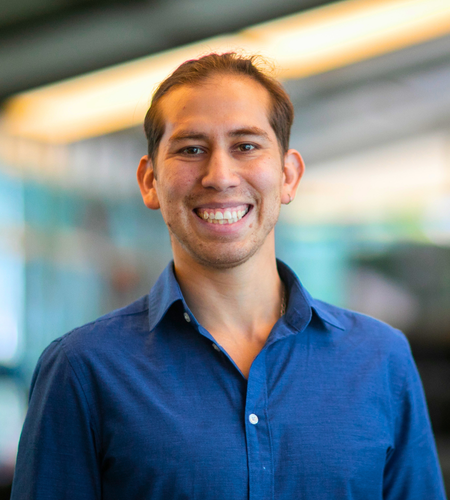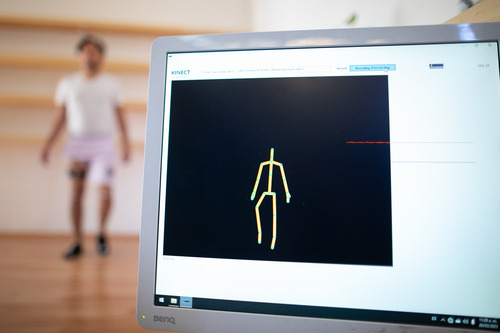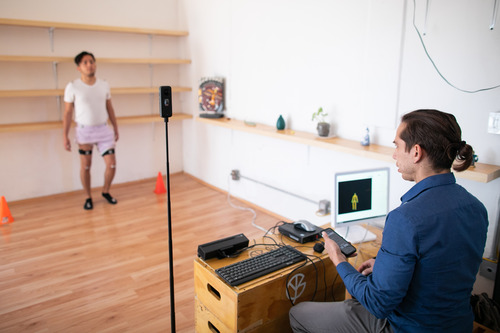
Biomechanic movement sensors providing bespoke diagnosis and treatment
Pain is a universal human condition, capable of causing debilitating restrictions. When Olympic gymnast and mechanical engineering student Adrian Elias Jiménez suffered a knee injury, his father (an electrical bioengineer) designed a sensor system to examine the joint of his knee. Inspired by this, Adrian now uses biomechanical engineering to diagnose the origins of pain caused by motion, and develop bespoke treatment programmes emphasising accessibility.
Innovation and Impact: Biomechanical Sensors
“Motion is the origin of most of our problems, so if we improve motion, we improve injuries.” Adrian’s simple philosophy underpins Biomexanik’s focus on using software and sensors to evaluate individual movement, minimising injuries while maximising performance. Repurposing second-hand sensors affordably replicates the bespoke testing previously only available at major institutes. Each person’s body moves and behaves differently, so Biomexanik combines hardware and software to generate detailed records which clinicians use to quantify limitations, mapping progress over time.
Eliminating the need for either recall, or subjective pain/mobility assessments, contributes towards the UN’s third Sustainable Development Goal, contributing to a higher global standard of health and wellbeing. It supports Goal eight’s ambition of full and productive employment, maximising individuals’ ability to work, while a Biomexanik project in Texas evaluating the frequency of farming-related injuries correlates to the second goal of ending world hunger and promoting sustainable agriculture.
Adrian is one of six multinational collaborators at Biomexanik, working alongside engineers, doctors, biochemists, and physiotherapists. His physiotherapy students are being taught granular patient assessment techniques, while academic collaborations and partnerships have established Biomexanik throughout North America.
LIF helped me to build relationships with people from Brazil, Mexico and Colombia.
Professor Adrian Elias Jiménez

How has LIF Impacted your Business and Future Plans?
“The mentoring during LIF helped me change a lot of paradigms I had before,” says Adrian. “I thought a company was designed to find a solution to a universal problem, but I found it's more based on finding a specific solution.” The LIF programme introduced him to an international audience of experts and potential partners: “LIF helped me to build relationships with people from Brazil, Mexico and Colombia. Entrepreneurship is a hard career, but when I saw other successful people, it motivated me. Without LIF, I would still be focused on the academic world, yet everything has an application in the real world."
As well as developing proprietary software, Adrian says Biomexanik will ultimately integrate sciences as diverse as biochemistry and nutrition into its remit. The company’s existing focus on specific occurrences (such as rotator cuff injuries among swimmers) could expand across all physical activities. This would transform both the understanding and treatment of neuromuscular diseases, developing personalised solutions as unique as each patient’s body. Biomexanik is also planning to release an app for Spanish-speaking doctors and physiotherapists worldwide, alongside plans to market the English-language version of the company’s software to UK-based coaches and physiotherapists, aiding Biomexanik in achieving the real-world application that LIF helped to emphasise the importance of.
Without LIF, I would still be focused on the academic world, yet everything has an application in the real world.

Looking to find out more about our entrepreneurs?
Click below to find out more about the entrepreneurs from this year's programme.
